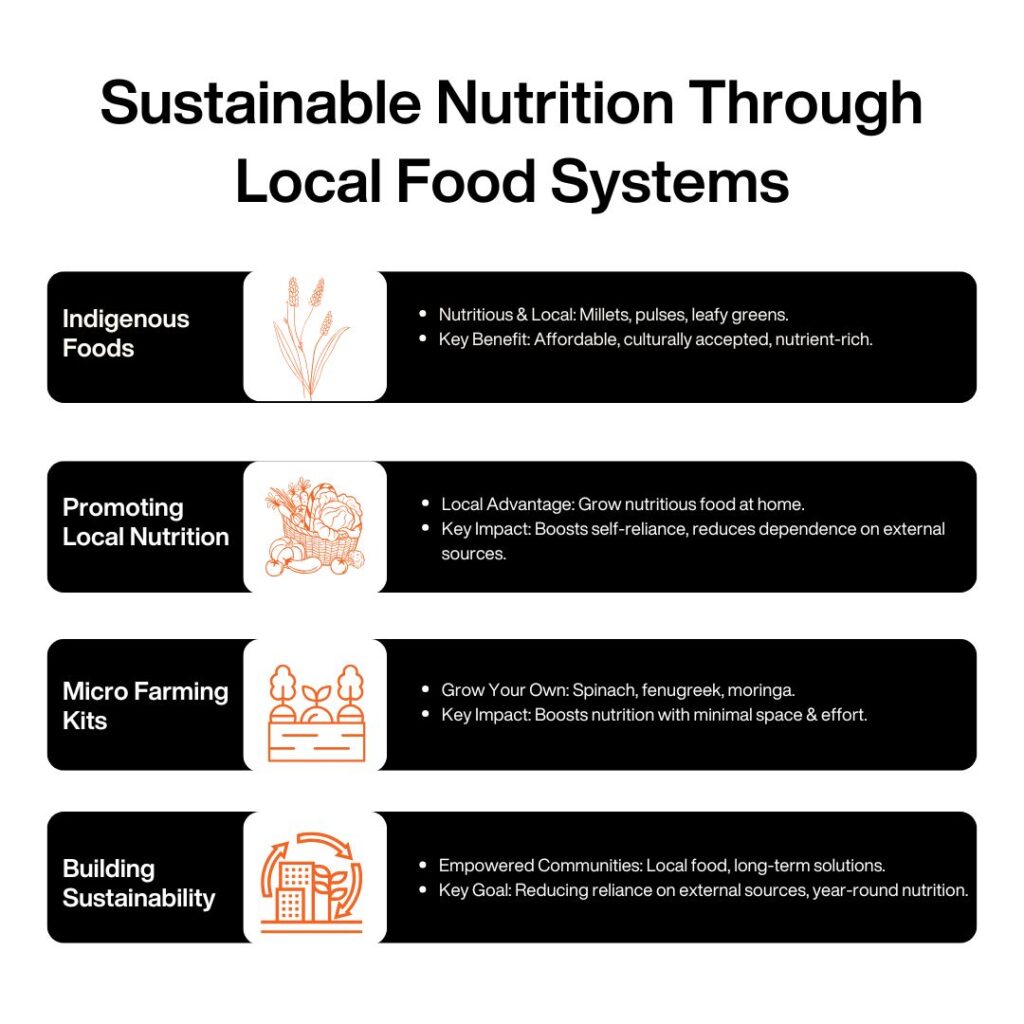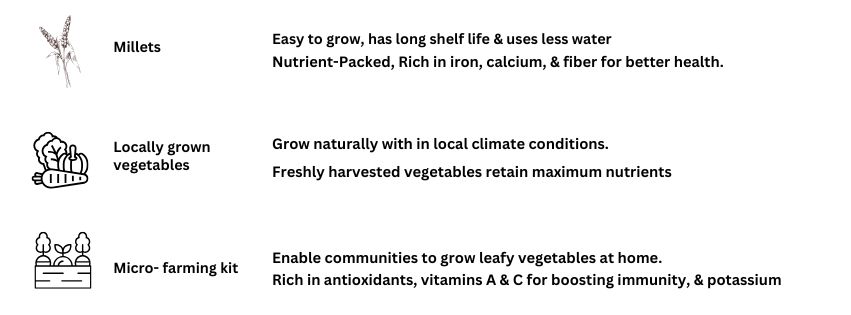Energy-dense & micronutrient-enriched supplementary nutrition plays a critical role in addressing the large-scale challenge of malnutrition faced by India today.
Pregnant & lactating mothers, newborns and children under 6 go through a critical window of growth where their need for adequate nutrition cannot be ignored or delayed.

Further to bridging their nutrition gap with supplements, addressing malnutrition in rural and remote communities also requires an integrated approach that leverages local resources.
The key to creating lasting change lies in empowering local populations and leveraging their resources in sustainable ways.
In many parts of India, indigenous food systems—rich in nutrition and deeply embedded in local culture—offer a solution that is both sustainable and scalable. By tapping into these local food sources, malnutrition can be addressed in a way that is aligned with local practices & traditions while fostering long-term resilience.

Utilizing Indigenous Foods: Promoting Traditional and Locally Available Nutritious Foods
India’s diverse food culture is a treasure trove of nutritious ingredients, many of which are native to specific regions and have been used for generations to nourish families. Indigenous foods, such as millets, pulses, leafy greens, and locally grown fruits, are packed with essential nutrients.
Despite their availability, these foods are underutilized in modern diets, particularly in impoverished areas where access to processed or shipped junk foods & snacks is becoming more common.
They are often more affordable, culturally accepted, and better suited to the environmental conditions of their regions.
Millets are rich in protein, fiber, and minerals and are well-suited to the climatic conditions of drought-prone regions. Leafy greens such as drumstick (moringa) leaves are rich in vitamins and minerals, yet these are often overlooked in favor of less nutritious, easily available foods.

At ANNADA, we emphasize the importance of incorporating pulses, millets, and leafy vegetables into daily diets, along with making communities aware of the value of indigenous foods available in their environment.
Through initiatives like micro farming kits, we empower communities to grow nutrient-rich leafy vegetables like spinach and fenugreek in small spaces. This innovative solution enables families to enrich their meals with fresh produce, addressing malnutrition at its root while reducing reliance on external food sources.
Write to us: [email protected]









